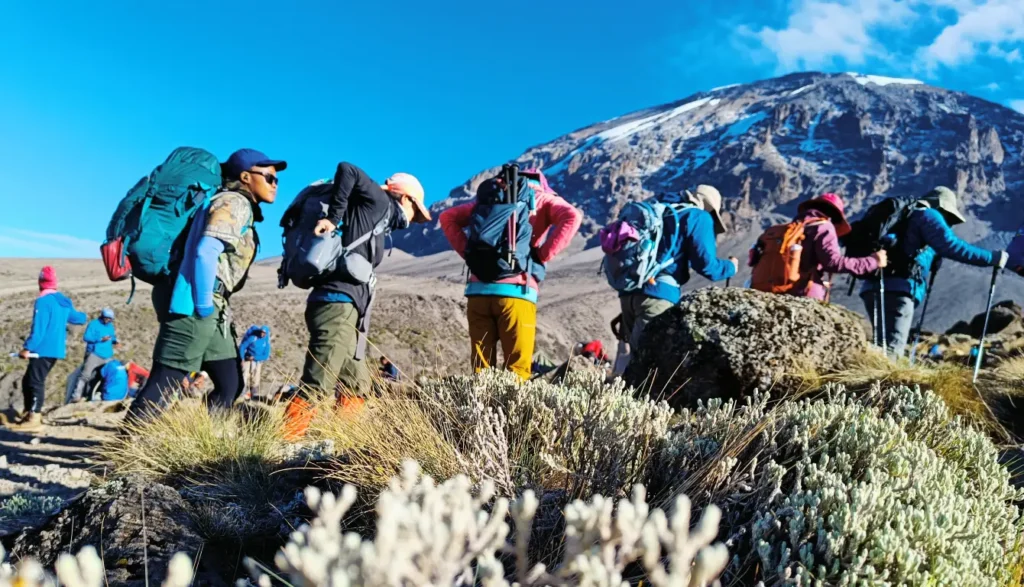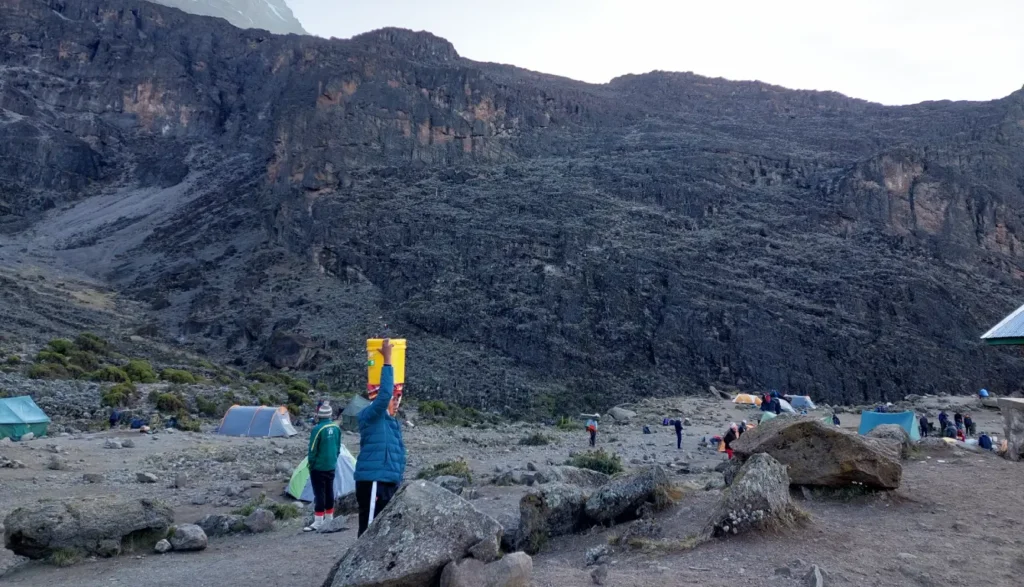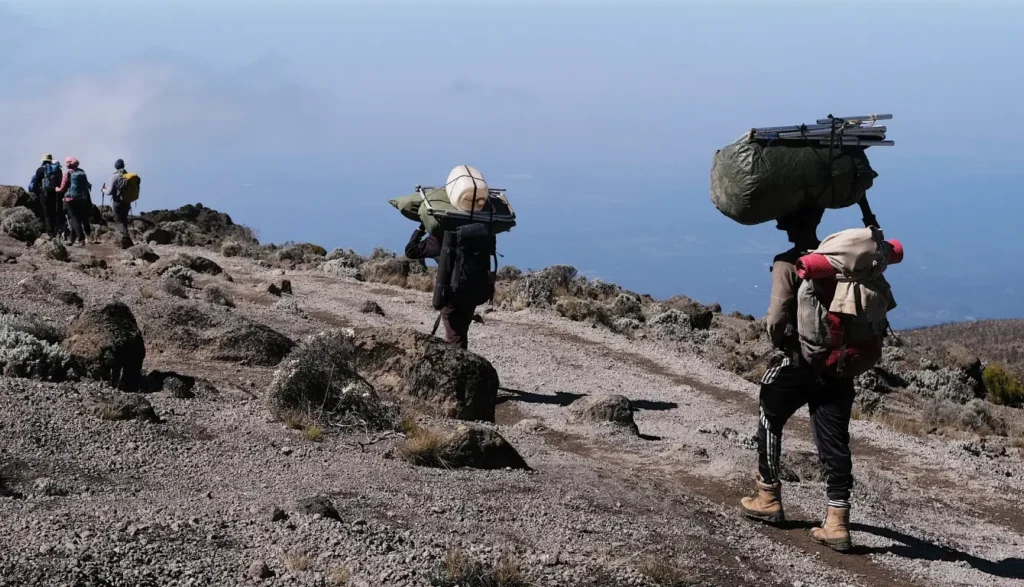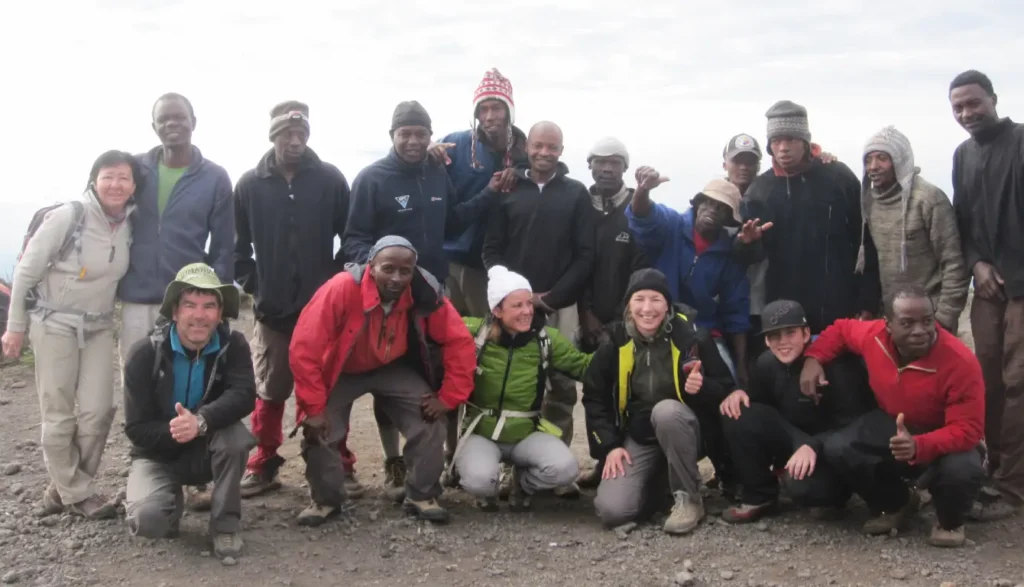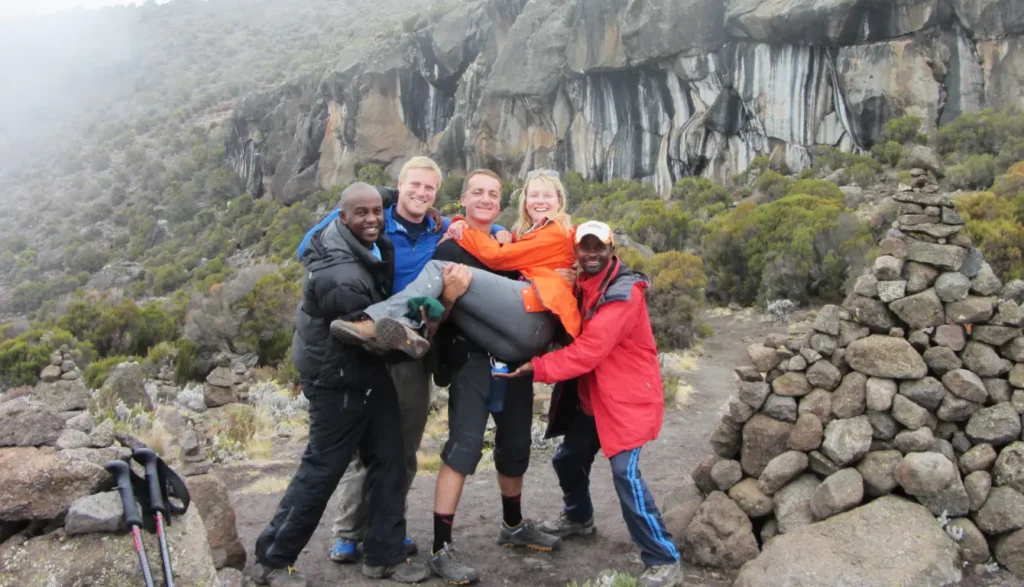The Unseen Heroes of Kilimanjaro
Beyond the guides and porters, you directly interact with, a whole team works tirelessly to manage crucial aspects of your journey. This includes specialized porters who:
Maintain hygiene: They set up and take down the camp toilets, ensuring they’re kept clean.
Protect the environment: Kilimanjaro is a national park with strict rules about human interaction with nature. Our team makes sure absolutely no litter is left behind, preserving the mountain’s pristine condition.
The Incredible Effort Behind Your Water Supply
One of the most remarkable examples of this “invisible” work is how we get water to high-altitude camps. Take Barafu Camp, for instance, which sits at a staggering 15,223 feet (4,640 meters) and has no nearby water source.
After porters have already carried all the climbers’ gear and personal belongings up the mountain, they then descend to Karanga Valley Camp, which is almost 2,296 feet (700 meters) lower at 13,123 feet (4,000 meters). There, they fill their water tanks and climb back up to Barafu.
So, while you’re relaxing in your tent, enjoying a warm cup of tea, you might not even realize the incredible effort that went into bringing that water to you under challenging, high-altitude conditions!
Keeping You Fed and Comfortable on the Mountain
Beyond the essential water supply, other specialized teams work hard to make sure you’re well-nourished and your camp life is smooth.
Fresh Supplies, Fresh Energy
Imagine enjoying fresh fruit and vegetables high up on Kilimanjaro! That’s thanks to a dedicated team that brings these perishable supplies, along with meat and other items that can’t be stored long-term. This team starts their challenging ascent from the base of the mountain on day 4 or 5 of your expedition. They trek for 12 hours straight, without breaks, proving just how tough and strong these individuals are.
The Unseen Heroes of Camp Life
Mountain Chefs: Our talented chefs aren’t just cooking for you; they’re also fueling the entire climbing crew! Their delicious meals provide everyone with the energy needed to reach the summit.
Dishwashers: These team members ensure all camping equipment stays clean. They work flexible hours, often late into the night, so you can finish dinner at your leisure and have clean dishes ready for your next meal.
Camp masters: These professionals are in charge of setting up and taking down tents at each camp. They make sure everything follows strict safety protocols and layouts, ensuring your overnight stays are as comfortable and secure as possible.

